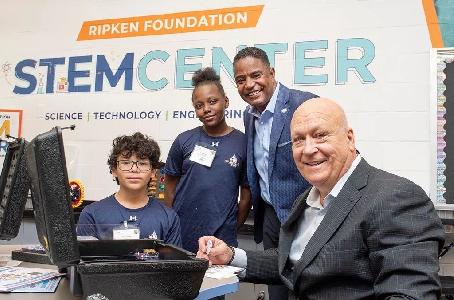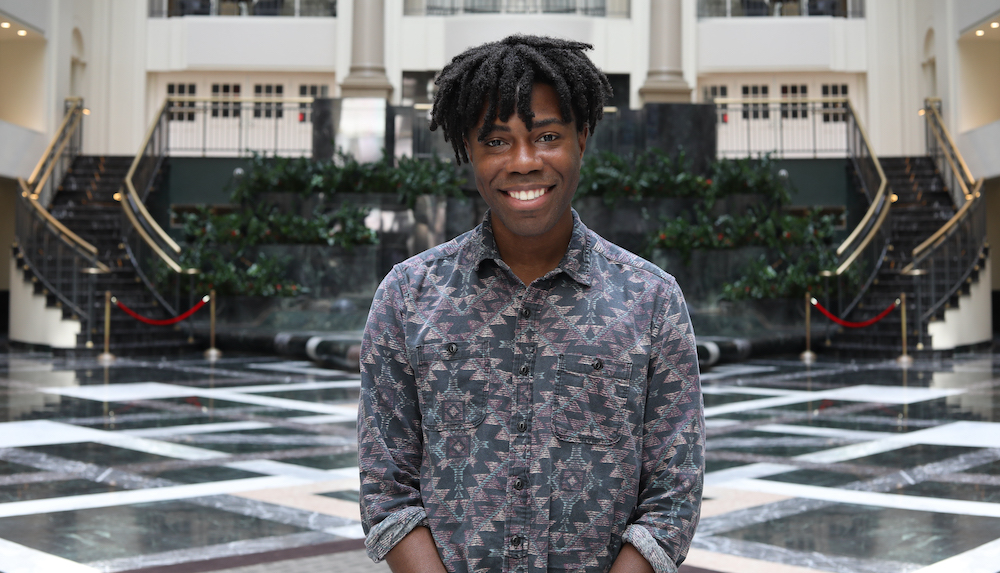Baltimore 3D printing design and manufacturing company Danae is partnering with Materic, and received investment from Conscious Venture Partners. It will allow the Pigtown-based company to expand and grow to new heights.
The support comes from two Baltimore-based firms: Materic is a Pigtown-based advanced materials manufacturer and Conscious Venture Partners, which is investing an undisclosed amount through its Conscious Venture Fund II, supports early-stage, mission-driven companies through investment and an accelerator.
Danae offers digital manufacturing services to 3D printing companies, small businesses and engineering companies looking to build prototypes or iterative designs.
The support brings a boost after more than five years of hard work and a particularly tough 18 months for founder Winston Frazer and Danae during a pandemic that sent shockwaves across the economy, as contracts that were on the table vanished, expected funds dried up and businesses had to scramble to stay solvent.
“We literally got approved for a half a million dollars, then COVID happened…and the deal got shut down,” said Frazer, referring to the March 2020 onset of the pandemic. “We had a bunch of large contracts sitting there waiting that we couldn’t fulfill because we couldn’t find investment…to get the equipment we needed to fulfill orders.”
What a difference a year makes. Through perseverance and dedication, Frazer found investment and support that will enable the company to install eight new 3D printers. These will allow the company to manufacture parts using techniques including Selective Laser Sintering, which turns powder into a 3D model, and Stereolithography technologies to cure liquid resin into hardened plastic.
Materic, which was launched by Pigtown-based Early Charm this year as its six advanced materials technologies merged into one company, will apply manufacturing infrastructure to help Danae grow. The firms will also promote each other’s capabilities. Both companies are based at 1100 Wicomico in Pigtown, where Early Charm added production space this year.
The agreement offers a sign of Baltimore businesses teaming up to support growth in the city by a company that recevied initial help from resources that help businesses get off the ground.
“We’ve watched Danae bootstrap its way to steady business after completing our Conscious Venture Lab accelerator program and saw this as the perfect time to extend that growth,” said Jeff Cherry, managing partner of Conscious Venture Partners, in a statement. “Bringing in an established partner like Materic makes our investment all the more attractive.”

A Danae 3D printing project. (Courtesy photo)
Even businesses with a customer base require capital to grow, and securing the funding to expand into phases of production is a process in and of itself. Like many things in entrepreneurship, it requires founders to keep going, even when it appears that doors close, Frazer said.
“Every day you just have to keep showing up, no matter what,” Frazer said. “It’s the only way you get anywhere, it’s the only way you grow. The person I was last year dealing with it is not the person I am today dealing with it, and it won’t be the person I’ll be in the future.”
The Frazer of yesterday was grilled and critiqued about the validity of his business by investors. Today, Frazer has a pair of partnerships that validate the company’s work, and can build from there. Deals are getting easier to close. Tomorrow, more doors could open. But Frazer acknowledged he didn’t get to that point on his own, and he lamented how it’s not always the validity of the business that determines funding, but the co-sign of a major investor.
“If I have funding, you don’t care what my business is and you’re just willing to put money into it. But if I don’t have money, you’re going to look at me with a microscope, almost too much so. The divergence of those two scenarios, it makes me cringe,” said Frazer. “Someone supporting me is the check mark for going ahead with it and having a very easy funding conversation, from what last month would have been an impossible conversation.”
In fact, if funding deals for Danae hadn’t fallen through with investors in other cities, including one in Kentucky, then Frazer wouldn’t be based in Baltimore today. It’s a testament to the necessity of providing early stage startup funding for cities seeking to keep local businesses and create hubs of industry.
When looking across the startup landscape, Frazer receiving the funding to expand is the exception, and not the rule. According to Crunchbase News, 1.2% of the record-setting venture capital raised nationwide in the first half of 2021 went to Black-founded startups. In 2020, the share was .8%. And there are further disparities when it comes to gender.
“I think for Black founders, it’s extra hard. For Black women founders, it’s extremely difficult,” said Frazer. “All the founders, we all know. We get together, go for drinks, go over to each other’s houses and complain to each other about deals that go wrong, so we know what’s going on with each other. We talk about the KPIs [key performance indicators], just what’s going on in the business.”
From these talks with other Black founders, Frazer sees anecdotal evidence of what shows up in the data: Black and Latinx women founders received .64% of all venture capital investment from 2018-2020, per the ProjectDiane report, a 4x increase from the last report in 2018.
“A lot of Black women founders have pretty stellar KPIs,” said Frazer. “But they are not being allowed in the room in the same way that I might be. And their KPIs are not getting the same amount of funding. Someone with zero revenue can get large investments, when I’ve seen many Black women founders have first-year KPIs that are a quarter million dollars in revenue and many customers and the investor is like ‘we don’t see it.'”
Donte Kirby is a 2020-2022 corps member for Report for America, an initiative of The Groundtruth Project that pairs young journalists with local newsrooms. This position is supported by the Robert W. Deutsch Foundation.Join the conversation!
Find news, events, jobs and people who share your interests on Technical.ly's open community Slack

Baltimore daily roundup: B-360's policy moves; a foundation's fight for financial inclusion; Digital Navigator training

Baltimore daily roundup: Johns Hopkins dedicates The Pava Center; Q1's VC outlook; Cal Ripken inaugurates youth STEM center

Baltimore daily roundup: Scenes from an epic Sneaker Ball; Backpack Healthcare in Google AI accelerator; local tech figures' podcast


